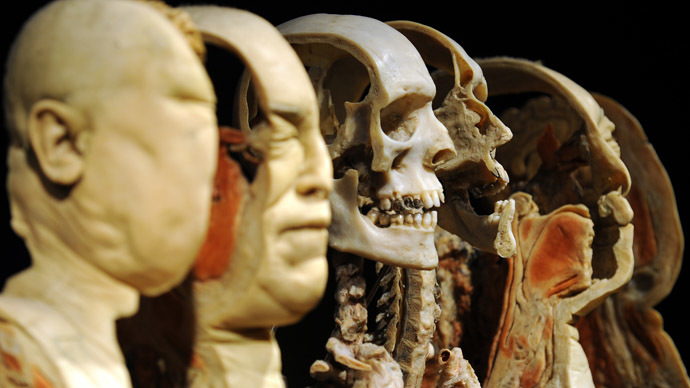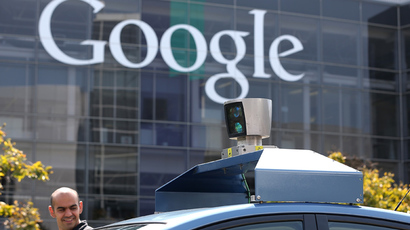Google’s next data collection project: Human body

Google’s research arm is planning an initial study of 175 people to collect anonymous health data from biological samples like blood and saliva in the process of creating individual genome databases that could eventually help fend off illness or disease.
For Google’s Baseline Study, researchers will track one’s genetic history, metabolic processes, and other aspects of an individual's body in efforts to create a baseline health standard.
The study will be run by molecular biologist Andrew Conrad, a pioneer in “cheap, high-volume tests for HIV in blood-plasma donations,” according to the Wall Street Journal. Conrad joined Google X, the tech giant’s research division, and built a team of experts in physiology, biochemistry, optics, imaging, and molecular biology, among other fields, for Baseline. They hope to use the data to detect conditions such as heart disease and bend medicine toward prevention rather than treatment of an illness.
"With any complex system, the notion has always been there to proactively address problems," Dr. Conrad said. "That's not revolutionary. We are just asking the question: If we really wanted to be proactive, what would we need to know? You need to know what the fixed, well-running thing should look like."
The project will collect hundreds of various samples with a multitude of diagnostic tools to find patterns, or “biomarkers,” within the data. Conrad’s team hopes the biomarkers will help indicate disease, for example, earlier than is currently possible.
Once a biomarker identifies a potentially hazardous trait, say a difficulty in breaking down fatty foods efficiently, the hope is that medical researchers can then offer a treatment plan or help that person modify her behavior that could help the process of breaking down fatty foods better, according to Conrad.
Baseline began this summer with a clinical testing firm working with the initial 175 participants in an exam that includes the collection of bodily fluids like urine, blood, saliva, and tears.
Lead investigators at clinics running the pilot study will collect the samples and extract information that can be used to identify individuals, like names or Social Security numbers. Once identifying data is removed, only then will Google employees have access to the findings. Conrad’s team will then craft a larger study with the help of the Duke University and Stanford University medical schools that will include thousands of more participants.
Still, the idea of allowing Google access to complete genome mapping of individuals alerts those worried about breaches of privacy. Insurers, for instance, would consider invaluable the information Google is hoping to collect. But Google X says boards operated by the medical schools at Duke and Stanford will control how the information is used, as is the usual protocol for medical research.
Baseline participants will likely use Google’s own wearable technology - such as the company's contact lenses that are designed to track glucose levels in diabetic users - to monitor bodily processes.
The Baseline Study will take Google further into the health-care realm than it's ever been, though the project is not yet intended to immediately result in a specific commercial product or service, as is the case with most Google X projects.














